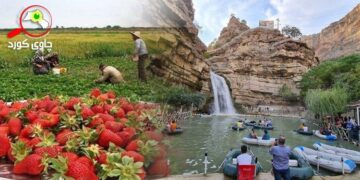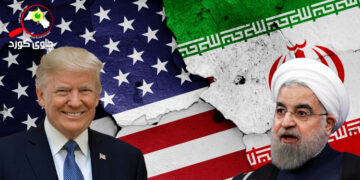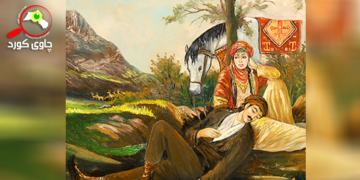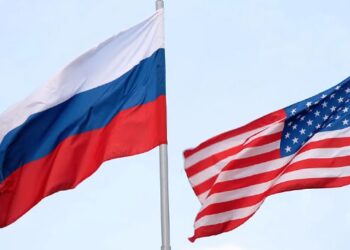When Vladimir Putin denies the reality of the Ukrainian state, he is speaking the familiar language of empire. For five hundred years, European conquerors called the societies that they encountered “tribes,” treating them as incapable of governing themselves. As we see in the ruins of Ukrainian cities, and in the Russian practice of mass killing, rape, and deportation, the claim that a nation does not exist is the rhetorical preparation for destroying it.
Empire’s story divides subjects from objects. As the philosopher Frantz Fanon argued, colonizers see themselves as actors with purpose, and the colonized as instruments to realize the imperial vision. Putin took a pronounced colonial turn when returning to the Presidency a decade ago. In 2012, he described Russia as a “state-civilization,” which by its nature absorbed smaller cultures such as Ukraine’s. The next year, he claimed that Russians and Ukrainians were joined in “spiritual unity.” In a long essay on “historical unity,” published last July, he argued that Ukraine and Russia were a single country, bound by a shared origin. His vision is of a broken world that must be restored through violence. Russia becomes itself only by annihilating Ukraine.
As the objects of this rhetoric, and of the war of destruction that it sanctions, Ukrainians grasp all of this. Ukraine does have a history, of course, and Ukrainians do constitute a nation. But empire enforces objectification on the periphery and amnesia at the center. Thus modern Russian imperialism includes memory laws that forbid serious discussion of the Soviet past. It is illegal for Russians to apply the word “war” to the invasion of Ukraine. It is also illegal to say that Stalin began the Second World War as Hitler’s ally, and used much the same justification to attack Poland as Putin is using to attack Ukraine. When the invasion began, in February, Russian publishers were ordered to purge mentions of Ukraine from textbooks.
Faced with the Kremlin’s official mixture of fantasy and taboo, the temptation is to prove the opposite: that it is Ukraine rather than Russia that is eternal, that it is Ukrainians, not Russians, who are always right, and so on. Yet Ukrainian history gives us something more interesting than a mere counter-narrative to empire. We can find Ukrainian national feeling at a very early date. In contemporary Ukraine, though, the nation is not so much anti-colonial, a rejection of a particular imperial power, as post-colonial, the creation of something new.
Southern Ukraine, where Russian troops are now besieging cities and bombing hospitals, was well known to the ancients. In the founding myth of Athens, the goddess Athena gives the city the gift of the olive tree. In fact, the city could grow olives only because it imported grain from ports on the Black Sea coast. The Greeks knew the coast, but not the hinterland, where they imagined mythical creatures guarding fields of gold and ambrosia. Here already was a colonial view of Ukraine: a land of fantasy, where those who take have the right to dream.
The city of Kyiv did not exist in ancient times, but it is very old—about half a millennium older than Moscow. It was probably founded in the sixth or seventh century, north of any territory seen by Greeks or controlled by Romans. Islam was advancing, and Christianity was becoming European. The Western Roman Empire had fallen, leaving a form of Christianity subordinate to a pope. The Eastern (Byzantine) Empire remained, directing what we now call the Orthodox Church. As Rome and Constantinople competed for converts, peoples east of Kyiv converted to Islam. Kyivans spoke a Slavic language that had no writing system, and practiced a paganism without idols or temples.
Putin’s vision of “unity” relates to a baptism that took place in this setting. In the ninth century, a group of Vikings known as the Rus arrived in Kyiv. Seeking a southbound route for their slave trade, they found the Dnipro River, which runs through the city. Their chieftains then fought over a patchwork of territories in what is now Ukraine, Belarus, and the northeast of Russia—with Kyiv always as the prize. In the late tenth century, a Viking named Valdemar took the city, with the help of a Scandinavian army. He initially governed as a pagan. But, around 987, when the Byzantines faced an internal revolt, he sensed an opportunity. He came to the emperor’s aid, and received his sister’s hand in marriage. In the process, Valdemar converted to Christianity.
Putin claims that this messy sequence of events reveals the will of God to bind Russia and Ukraine forever. The will of God is easy to misunderstand; in any case, modern nations did not exist at the time, and the words “Russia” and “Ukraine” had no meaning. Valdemar was typical of the pagan Eastern European rulers of his day, considering multiple monotheistic options before choosing the one that made the most strategic sense. The word “Rus” no longer meant Viking slavers but a Christian polity. Its ruling family now intermarried with others, and the local people were treated as subjects to be taxed rather than as bodies to be sold.
Yet no rule defined who would take power after a Kyivan ruler’s death. Valdemar took a Byzantine princess as his wife, but he had a half a dozen others, not to mention a harem of hundreds of women. When he died in 1015, he had imprisoned one of his sons, Sviatopolk, and was making war upon another, Yaroslav. Sviatopolk was freed after his father’s death, and killed three of his brothers, but he was defeated on the battlefield by Yaroslav. Other sons entered the fray, and Yaroslav didn’t rule alone until 1036. The succession had taken twenty-one years. At least ten other sons of Valdemar had died in the meantime.
These events do not reveal a timeless empire, as Putin claims. But they do suggest the importance of a succession principle, a theme very important in Ukrainian-Russian relations today. The Ukrainian transliteration of “Valdemar” is “Volodymyr,” the name of Ukraine’s President. In Ukraine, power is transferred through democratic elections: when Volodymyr Zelensky won the 2019 Presidential election, the sitting President accepted defeat. The Russian transliteration of the same name is “Vladimir.” Russia is brittle: it has no succession principle, and it’s unclear what will happen when Vladimir Putin dies or is forced from power. The pressure of mortality confirms the imperial thinking. An aging tyrant, obsessed by his legacy, seizes upon a lofty illusion that seems to confer immortality: the “unity” of Russia and Ukraine.
In the Icelandic sagas, Yaroslav is remembered as the Lame; in Eastern Europe, he is the Wise, the giver of laws. Yet he did not solve the problem of succession. Following his reign, the lands around Kyiv fragmented again and again. In 1240, the city fell to the Mongols; later, most of old Rus was claimed by the Grand Duchy of Lithuania, then the largest state in Europe. Lithuania borrowed from Kyiv a grammar of politics, as well as a good deal of law. For a couple of centuries, its grand dukes also ruled Poland. But, in 1569, after the Lithuanian dynasty died out, a Polish-Lithuanian commonwealth was formalized, and the territories of Ukraine were placed under Polish jurisdiction.
This was a crucial change. After 1569, Kyiv was no longer a source of law but an object of it—the archetypal colonial situation. It was colonization that set off Ukraine from the former territories of Rus, and its manner generated qualities still visible today: suspicion of the central state, organization in crisis, and the notion of freedom as self-expression, despite a powerful neighbor.
During the sixteenth and seventeenth centuries, all the forces of Europe’s globalization seemed to bear down on Ukraine. Polish colonization resembled and in some measure enabled the European colonization of the wider world. Polish nobles introduced land-management practices—along with land managers, most of whom were Jewish—that allowed the establishment of profitable plantations. Local Ukrainian warlords rushed to imitate the system, and adopted elements of Polish culture, including Western Christianity and the Polish language. In an age of discovery, enserfed peasants labored for a world market.
Ukraine’s colonization coincided with the Renaissance, and with a spectacular flowering of Polish culture. Like other Renaissance thinkers, Polish scholars in Ukraine resuscitated ancient knowledge, and sometimes overturned it. It was a Pole, Copernicus, who undid the legacy of Ptolemy’s “Almagest” and confirmed that the Earth orbits the sun. It was another Pole, Maciej of Miechów, who corrected Ptolemy’s “Geography,” clearing Ukrainian maps of gold and ambrosia. As in ancient times, however, the tilling of the black earth enabled tremendous wealth, raising the question of why those who labored and those who profited experienced such different fates.
The Renaissance considered questions of identity through language. Across Europe, there was a debate as to whether Latin, now revived, was sufficient for the culture, or whether vernacular spoken languages should be elevated for the task. In the early fourteenth century, Dante answered this question in favor of Italian; English, French, Spanish, and Polish writers created other literary languages by codifying local vernaculars. In Ukraine, literary Polish emerged victorious over the Ukrainian vernacular, becoming the language of the commercial and intellectual élite. In a way, this was typical: Polish was a modern language, like English or Italian. But it was not the local language in Ukraine. Ukraine’s answer to the language question was deeply colonial, whereas in the rest of Europe it could be seen as broadly democratic.
The Reformation brought a similar result: local élites converted to Protestantism and then to Roman Catholicism, alienating them further from an Orthodox population. The convergence of colonization, the Renaissance, and the Reformation was specific to Ukraine. By the sixteen-forties, the few large landholders generally spoke Polish and were Catholic, and those who worked for them spoke Ukrainian and were Orthodox. Globalization had generated differences and inequalities that pushed the people to rebellion.
Ukrainians on the battlefield today rely on no fantasy of the past to counter Putin’s. If there is a precursor that matters to them, it is the Cossacks, a group of free people who lived on the far reaches of the Ukrainian steppe, making their fortress on an island in the middle of the Dnipro. Having escaped the Polish system of landowners and peasants, they could choose to be “registered Cossacks,” paid for their service in the Polish Army. Still, they were not citizens, and more of them wished to be registered than the Polish-Lithuanian parliament would allow.
The rebellion began in 1648, when an influential Cossack, Bohdan Khmelnytsky, saw his lands seized and his son attacked by a Polish noble. Finding himself beyond the protection of the law, Khmelnytsky turned his fellow-Cossacks toward revolt against the Polish-speaking, Roman Catholic magnates who dominated Ukraine. The accumulated cultural, religious, and economic grievances of the people quickly transformed the revolt into something very much like an anti-colonial uprising, with violence directed not only against the private armies of the magnates but against Poles and Jews generally. The magnates carried out reprisals against peasants and Cossacks, impaling them on stakes. The Polish-Lithuanian cavalry fought what had been their own Cossack infantry. Each side knew the other very well.
In 1651, the Cossacks, realizing that they needed help, turned to an Eastern power, Muscovy, about which they knew little. When Kyivan Rus had collapsed, most of its lands had been absorbed by Lithuania, but some of its northeastern territories remained under the dominion of a Mongol successor state. There, in a new city called Moscow, leaders known as tsars had begun an extraordinary period of territorial expansion, extending their realm into northern Asia. In 1648, the year that the Cossack uprising began, a Muscovite explorer reached the Pacific Ocean.
By Timothy Synder
The New Yorker



























































